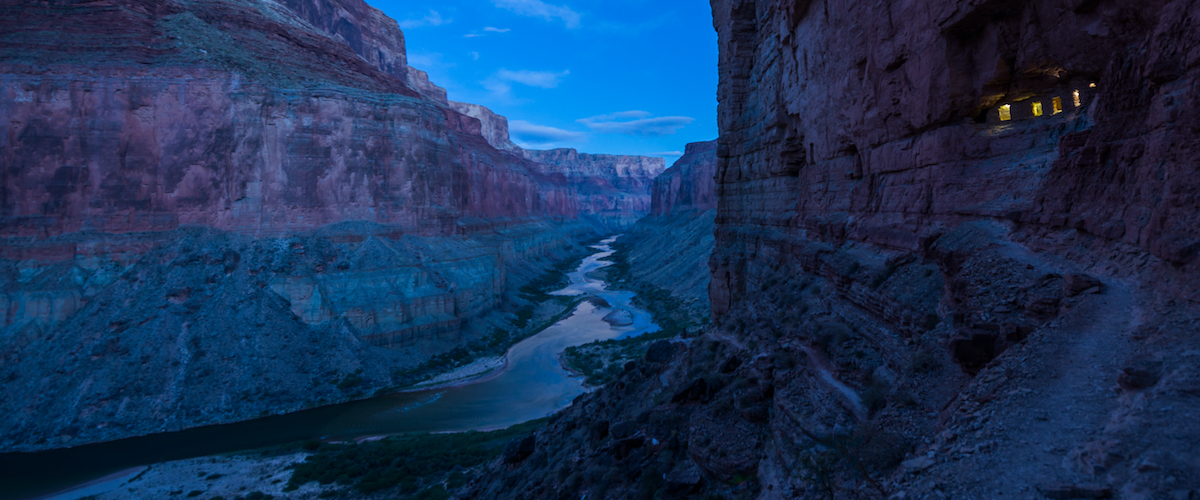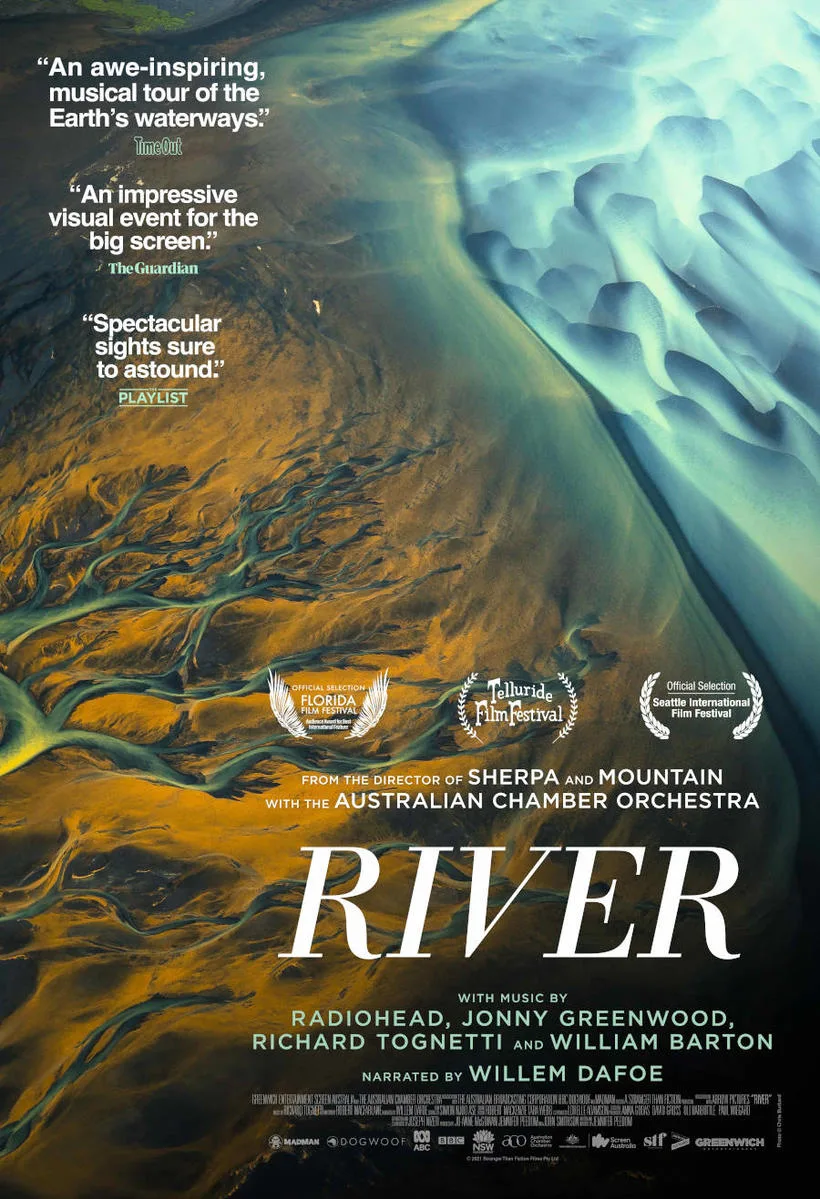In a mild coincidence, a little before I watched this impressionistic documentary directed by Jennifer Peedom and Joseph Nizeti, I also screened David Cronenberg’s 1991 “Naked Lunch,” which features Willem Dafoe doing voice work as both a talking typewriter and a Mugwump (look it up, it’s worth it). And I thought, “Gee willikers, isn’t Dafoe a great voice actor as well as a great physical actor,” because the two aren’t mutually exclusive, after all. While his register isn’t quite baritone, it has a character-filled warmth that carries notes of both profundity and playful wit with every utterance.
And as it happens, “River,” a brief and often visually staggering film, is narrated by Dafoe, who is seen briefly in black-and-white, negotiating a recording booth while the Australian Chamber Orchestra tunes up nearby. After everybody’s ready, the real flow begins. A series of stunning shots of water in various permutations. A kayaker going down rapids. Torrents descending down waterfalls. The land surrounding this water is sometimes lush, sometimes almost sere. Sometimes undisturbed by man, sometimes surrounded by man’s works, not all of which are good.
The movie begins with a quote from Auden: “Thousands have lived without love, not one without water,” from his famous poem First Things First. “For eons, running water obeyed only its own laws,” Dafoe intones, and the corresponding visuals show water rushing through landscapes where not a soul can be discerned, demonstrating the miracle of erosion and its earth-shaping powers. The narration sometimes verges on redundancy—the verb “revere” is trotted out twice in less than ten minutes.
Without getting specific, the movie turns to how human innovators and engineers harnessed river water’s energy, “taming” the waters’ “wildness.” The Bible quote about man’s dominion over Earth is not used, but the movie notes how we humans went “from seeing” rivers “as living beings to seeing them as resources.” And hugely valuable resources they are.
At times, the imagery is so potent, Dafoe’s voice so ingratiating, that “River” feels like a science lesson that takes the form of a seduction. Eventually, the movie has to deal with the fact that once humankind finds a resource, it inevitably abuses it. And again, without getting overly specific (and maybe for this section that wasn’t entirely a great feature to stick to), the documentary shows the dire effects of pollution and makes note of the inequity of water distribution across the world. “One country’s affluence is another’s affliction,” the narration notes. The directors don’t advocate for any remedy, nor do they come to a conclusion. Instead, the movie flows like a river and all. While Dafoe says wise words, the chamber orchestra contributes tuneage by many of the Great Masters: Vivaldi, Bach, Sibelius, Mahler, Ravel, and Jonny Greenwood. Not a call to action, “River” instead contents itself by being a sensational reminder of where it is we all come from.
In theaters today.




















